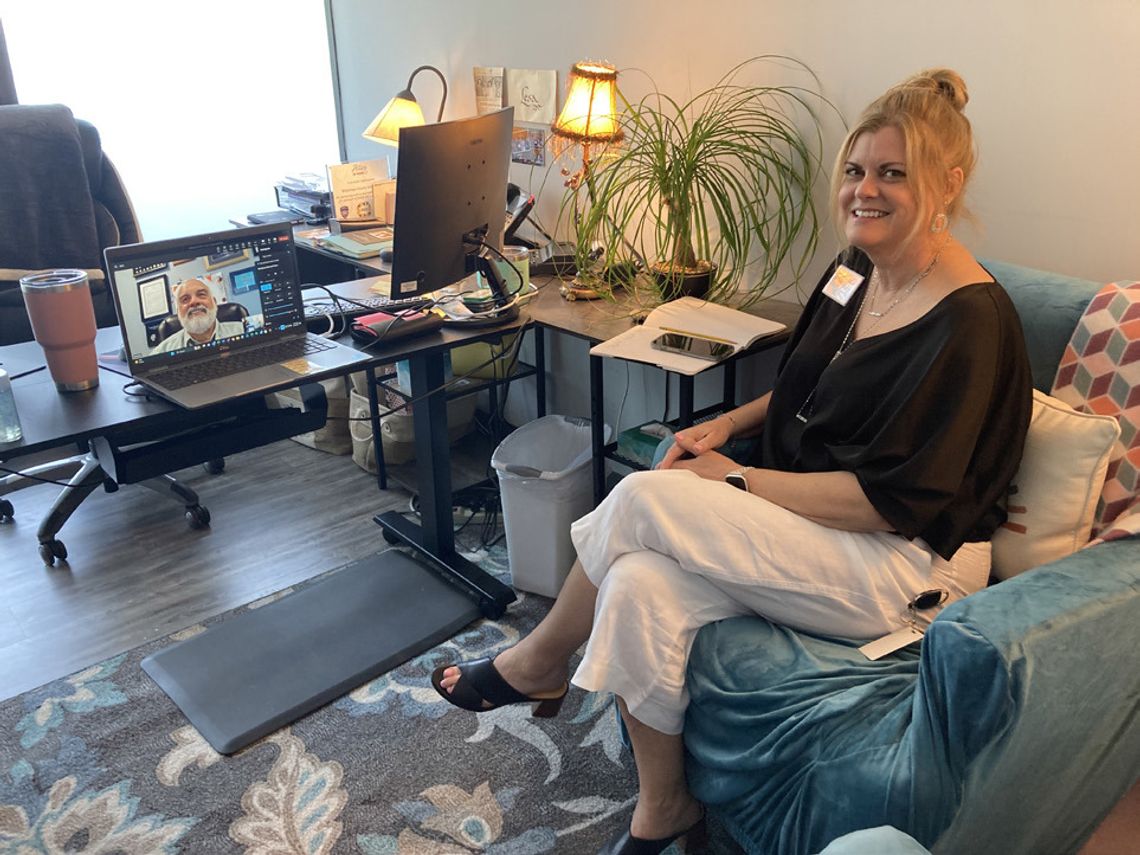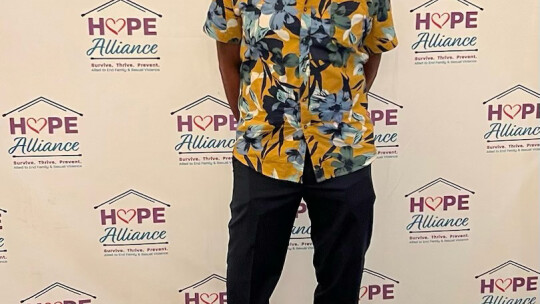Nonprofit expanding support for victims of sexual violence
ROUND ROCK — Taylor native Marcus Reese is now an outspoken advocate for fellow survivors of sexual abuse and trauma, but one of the first steps of his healing journey began at a place called Hope.
“You see there was a time, way before I made a police report, that I found myself in a mental health crisis,” Reese said as a featured speaker of the “Allies of Hope Awards Dinner” May 20 at Kalahari Resorts in support of Hope Alliance, Williamson County’s only resource center and shelter for victims of domestic and sexual violence. “I’d spent days locked in my home and desperate for help. I went online looking for resources. That’s when I found Hope Alliance and made an appointment. There I sat doing an intake and was trying to fight back the urge to run out of the office. I was asked why I came in, and I let it all out. The woman working with me was so kind and gentle, and when I was done, she said, ‘I believe you, and I’m sorry that happened to you.’ Those words meant everything to me. To have a stranger accept my truth and my vulnerability set me forth on this path.”
Hope Alliance, which was launched in 1984 as the Rape Crisis Center, has since morphed into a fullservice family shelter and resource provider based in Round Rock, providing a wide range of services, including a 24-hour emergency hotline, legal advocacy, a “Store of Hope” with free clothing, diapers and other basic supplies, crisis counseling, play therapy for children, and more.
Recently, the agency also opened a 14-bed shelter in Hutto, using space provided by Williamson County, which is also funding the new facility for the first six months, said CEO Richard M. Brown.
“It’s an unprecedented partnership with Williamson County in the interest of public safety,” Brown said.
Lesa Cantrell, Hope’s vice president of resource development, said the agency receives about 4,500 inquiries a year, and in 2022, directly served 1,169 clients, about 14 of whom are from Taylor.
Typically, there is a waiting list of about six weeks for shelter space and counseling services, Cantrell said.
“We try our hardest to place people with us,” Cantrell said. “We do a lethality questionnaire when someone calls the hotline. We do everything in our power to get our clients to a safe place.”
Though they also work closely with law enforcement, sometimes the agency has taken drastic steps to immediately assist people in dangerous situations, Brown said.
“Hope Alliance has made arrangements to meet that client, pick a place with a front and back entrance,” Brown said. “The client goes in the front and comes out the back to a car waiting to escape to the shelter. It doesn’t happen often, but it has happened.”
Hope also helps on a case-by-case basis with rent and other expenses if it enables clients to maintain safety for themselves and/or their children, Cantrell said.
As the only emergency shelter in Williamson County, and with a booming population for the foreseeable future, the non-profit’s leaders only expect the need for services to increase. Therefore, the agency has purchased 11.5 acres in Leander to build a new 43,500 square-foot facility with 96 beds, with other agencies on site also available to help clients, officials said.
“We are only serving about 50 percent of the demographic who are in Williamson County,” Brown said. “Our board of directors believes this is not acceptable, and we have got to find a better way. We are looking at a ten-year future.”
As Hope Alliance works to raise about $20 million for this expansion, leaders are also hoping to reach more residents of Williamson County to let them know about the valuable services they offer.
“We are trying to make more people aware, so we can help more people,” Cantrell said. “Because it’s a huge problem that no one is talking about.”






